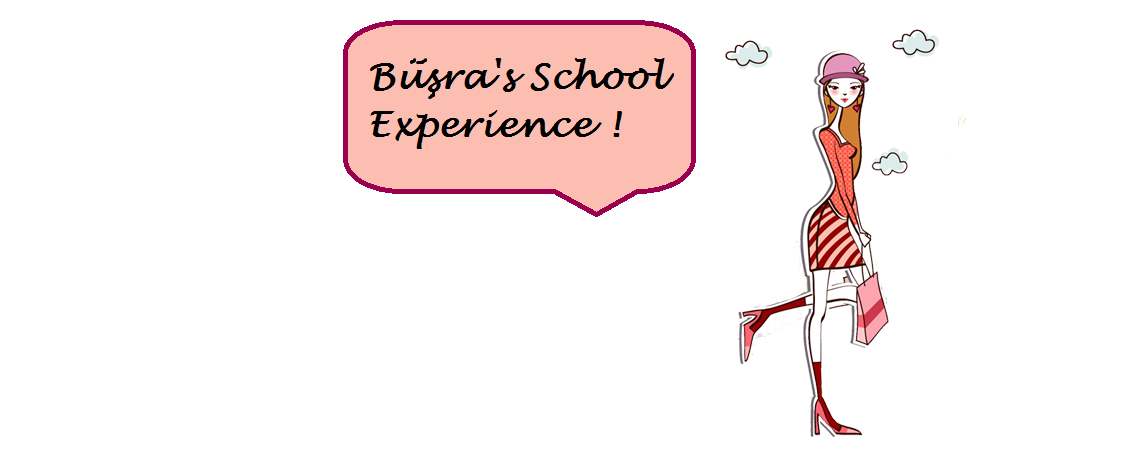I would like to talk about my mini lesson. It was a follow up activity. I wanted to try something different I hope you like.
Before starting, I hanged a material about twitter on
the board in order to catch their attention. I can say that it was really
effective because all the students looked at the board and they said “Twitter!”
Then, I asked whether they have a Twitter account or not. Most of them replied
as “Yes!” and all the students knew what the twitter is. I also explained what
Twitter is and how it is used and mentioned about 140-letter limitation. I
passed my main activity and wanted them to open a page I had determined before
and read the narrative story silently. Actually, I recognized that they got
confused because they couldn’t find out the relationship between Twitter and
the narrative story. Whereas, that was the thing I had already planned so I
felt good and went on. After reading silently, I asked one of the volunteers to
read the story aloud and the rest stayed focused by the way. The narrative
story was too boring both to read and listen to. It was about a group of
young’s holiday experiences. I would like to summarize it in order to show the
effect of my activity: While they are sitting down on the sand, some people are
calling for help. It is for a girl who is about to get drowned. An ambulance
comes and the girl is rescued. I asked them whether they like the story or not.
They answered as “No.” I asked “Is the story exciting or ordinary?” They said
“Ordinary.” This answer actually supported my activity and I went on. I said
“Let’s try to do something different!” and I wanted them to close their eyes. I
wanted them feel as if they were sitting down on the sand with their friends. Additionally,
I wanted them feel as if it was holiday, everything was great, they were
sunbathing and there was no homework. I made them think that a girl was calling
for help and there was nobody to help her. They opened their eyes. I mentioned
about hashtags used in Twitter environment. I add “I want you to write ‘What
would you do if you were there?’ or ‘How would you feel if you were there?” in
140 letters. I added “Our hashtag is #iwould ” After all the students
finished, I wanted volunteers to share their tweets with the whole class.
I have to say that the original activity was a writing
activity but it was really commonplace so I asked myself “How can I make this
writing activity more enjoyable?” I also wanted to take less time. Thus,
writing tweet sounded me so cool and different. I believe that they had to
think fast and produce some different solutions so the activity prompted
critical thinking. The last grammar topic they had learnt was ‘If Clauses’.
Thus, they could create sentences like “If I were there, I would…” easily and
this activity provided retention of ‘If Clauses’. Besides, they comprehend the
story implicitly. I believe that I conduct the class in a good way. I always
spoke in English. Even when the students asked me something in Turkish, I
answered in English. The tone of my voice was high enough and my sentences are
understandable. I used colourful boardmarkers and my material could be seen
even from back rows. I think this details are really important. The issue I was
criticized by my teacher is about giving feedback. I accept it because after
watching my video, I also noticed that my feedbacks were always short when I
heard the tweets. I should have given feedback in more detailed way yet we had
little time and that was a follow-up activity. Thus, I didn’t want to talk too
much. Instead, I wanted to hear more ideas. Another criticism came from my
friend about studying individually. He said I should have done group work. As I
said him, I couldn’t have done group activity because of the specific reasons.
I tried it before but it took too much time to make groups and I asked some of
the students whether they like group works or studying individually. The answer
was interesting. They said “Of course, individually.” I learnt that they feel
more comfortable individually during writing activities. In order to make the
activity more economic, I preferred an activity which every students can join
individually. It was a follow-up activity and it took 13 minutes. In 13
minutes, we comprehend a narrative story, we activated our brains and produce
different ideas in the structure “If Clauses” and we share our ideas.

.jpg)
